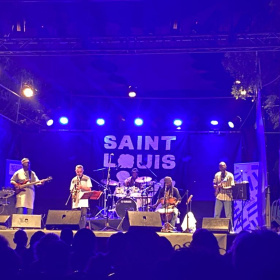Kenya: KECOBO unveils five-year plan
The Kenya Copyright Board (KECOBO) has launched its strategic plan for the 2017-22 period.
 KECOBO's plan aims to support female creatives in Kenya.
KECOBO's plan aims to support female creatives in Kenya. Sylvia Gichia and Christine Agimba.
Sylvia Gichia and Christine Agimba.
KECOBO boss Edward Sigei told Music In Africa that the five-year plan took into consideration the dynamic environment the industry regulator was operating in and prepared it to stay relevant in the digital age.
“We remain committed to playing a significant role in the development of arts in Kenya and in the region,” he said. “The creative industry has grown over the years and with the advancement of technology – piracy in music, film, photography and design has increased. So now more than ever, we need to fight digital piracy.”
KECOBO also unveiled a new logo yesterday at an event in Nairobi that coincided with World Intellectual Property Day, which this year is running under the theme, Powering Change: Women in Innovation and Creativity.
KECOBO board member Sylvia Gichia said the new strategic plan made provisions to support policies and programmes that would lessen some of the challenges faced by female creatives in Kenya.
“We are proud of the increasing number of Kenyan women who are recognised both locally and internationally for their creativity and innovation,” she told Music In Africa. “I know the challenges that women face to bring out their creations. Many women have to make difficult decisions about whether to invest in the creative enterprise or to put food on the table. The work to empowering women to harness their skills and talents requires a concerted effort from both the government and the private sector.”
Attorney-general Paul Kihara Kariuki, in a note read by deputy solicitor-general Christine Agimba, said his office would continue to support KECOBO so it could see through its mandate.
“We are following closely the progress of the Copyright Amendment Bill 2017 through Parliament,” Kariuki said. “Our office has also recently begun the process of ensuring that Kenya ratifies all the international copyright treaties it has signed because there is an urgent need to protect creatives’ rights and promote their works for sustainable development of themselves and the economy.”
A 2007 study conducted jointly by KECOBO and the World Intellectual Property Organization (WIPO), the UN-mandated body responsible for launching World Intellectual Property Day in 2000, placed Kenya's creative sector's at 85.1 billion Kenyan shillings ($8.5m), or about 5.3% of the country’s GDP.

















Commentaires
s'identifier or register to post comments